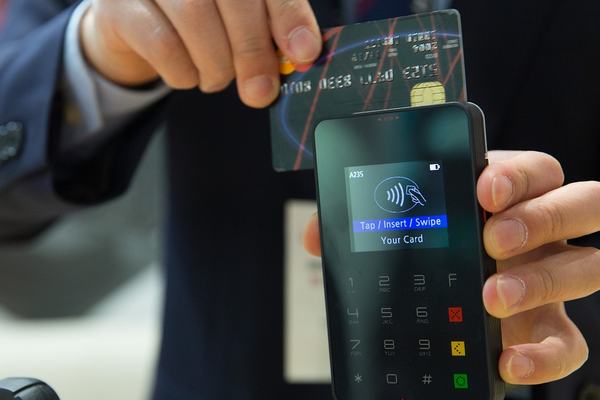
By alphacardprocess February 14, 2022
Mobile credit card processing is a way for small business owners to accept credit cards using their smartphone. There are two primary methods of mobile credit card processing: Swiped and keyed.
Swiped transactions occur when the customer physically swipes their credit or debit card through a device that plugs into a smartphone or tablet’s headphone jack. Keyed transactions go through the card’s magnetic stripe by manually entering information into a software keypad on a smartphone or tablet.
Mobile credit card processing is typically less expensive than traditional point of sale (POS) systems, and there are no contracts, monthly fees or long-term commitments to use it.
What features should I look for when choosing a mobile credit card processor?
When choosing a mobile credit card processing solution, it’s important to consider what features and functions you need and how they will work for your business. Here are some of the most basic:
- Mobile-friendly: The app must be compatible with Apple or Android devices.
- PCI Compliance: You don’t want to put your customers’ data at risk, so it’s important that the credit card processor you choose is certified as PCIDSS-compliant.
- Hardware: You should have full control over which mobile hardware devices (such as headphone jacks or Bluetooth) you’d like to use with your software service.
- Ease of use: Look for an app that will integrate with inventory systems, accounting software and payroll services you currently use, to minimize the time it takes to process credit cards.
- Customer support: Asking questions is a big part of operating a business successfully; make sure your new mobile credit card processing service offers responsive customer support.
What is the average cost of mobile credit card processing?
There isn’t a one-size-fits all way to calculate mobile credit card processing fees. The best way is to compare several quotes from leading providers and work with them to find a solution that fits your business’s needs and budget.
When choosing between services, here are some factors that can influence the cost:
- Ease of use: More expensive solutions tend to be easier for a business owner or manager to learn and operate.
- Hardware: Hardware is often a bigger initial investment, but it means you won’t have monthly fees associated with purchasing headphone jacks or Bluetooth devices.
- Customer support: You may have to pay more up front, but excellent customer support can help you resolve issues quickly and ensure your business doesn’t miss out on sales.
- Transaction speed: Mobile credit card processing transactions are faster than traditional POS systems. This convenience may come at a higher price tag.
- PCI Compliance: Some mobile payment providers have additional security measures for transmitting and storing data, which may increase the cost of a service.
- Number of transactions: Higher volume businesses will pay a lower average rate per transaction than a low-volume business.
- Hardware included: Some providers have hardware that is included in their fee or offer it as an option. This can be attractive to those who already have devices they like to use and want to avoid additional monthly fees.
What is the average cost of swipe transactions?
Swiped transactions are those that go through a credit card’s magnetic strip by placing the card in the device you’re using (such as a headphone jack) and swiping it like a credit card machine. The fee for this type of transaction is typically a percentage of the total sale plus a fixed charge.
The average cost per swipe on some mobile credit card processors is as low as 2 to 3 percent, which can be less than traditional POS systems and significantly lower than traditional credit card processing fees or even Square (which charges up to 2.75%).
